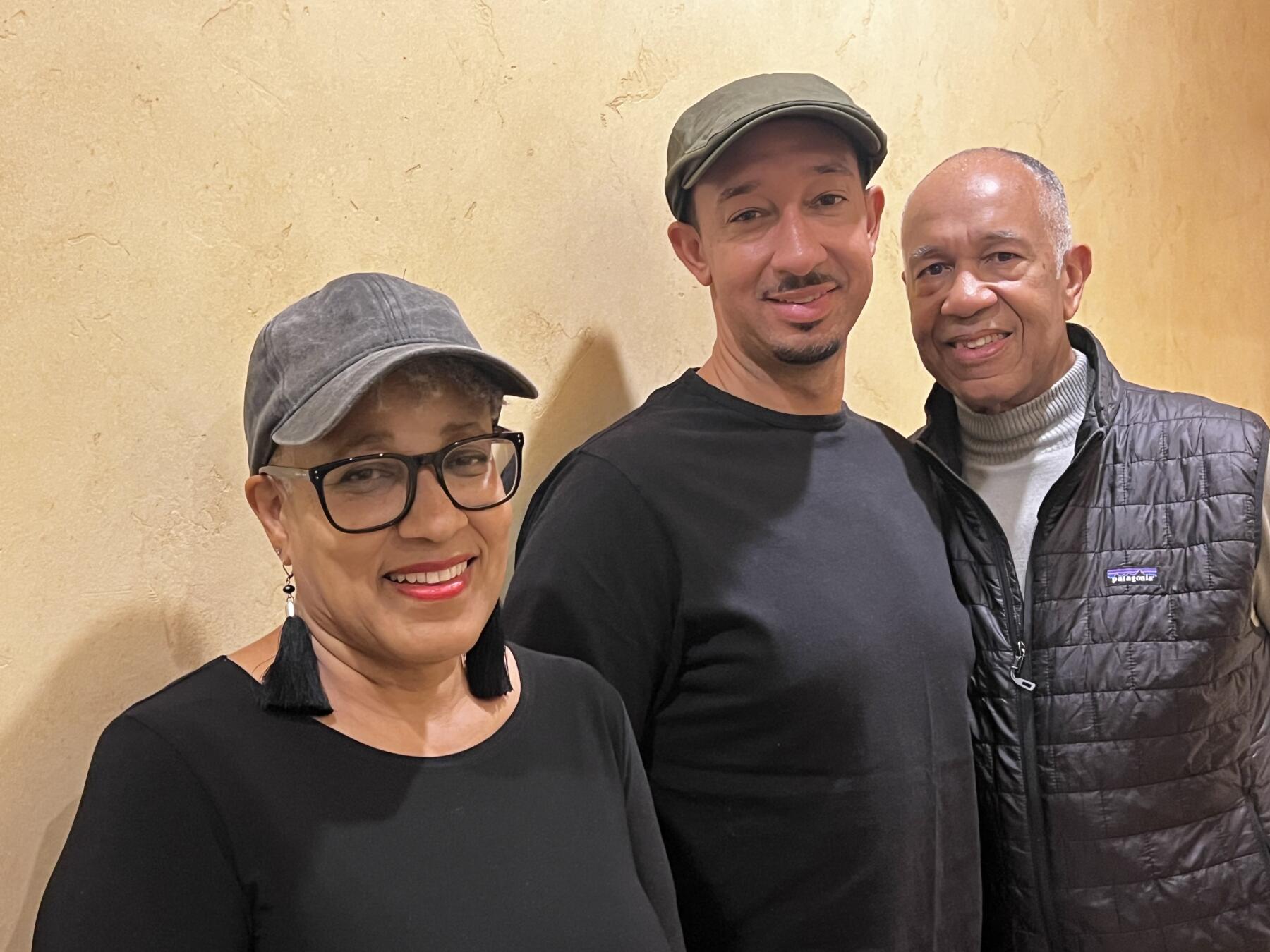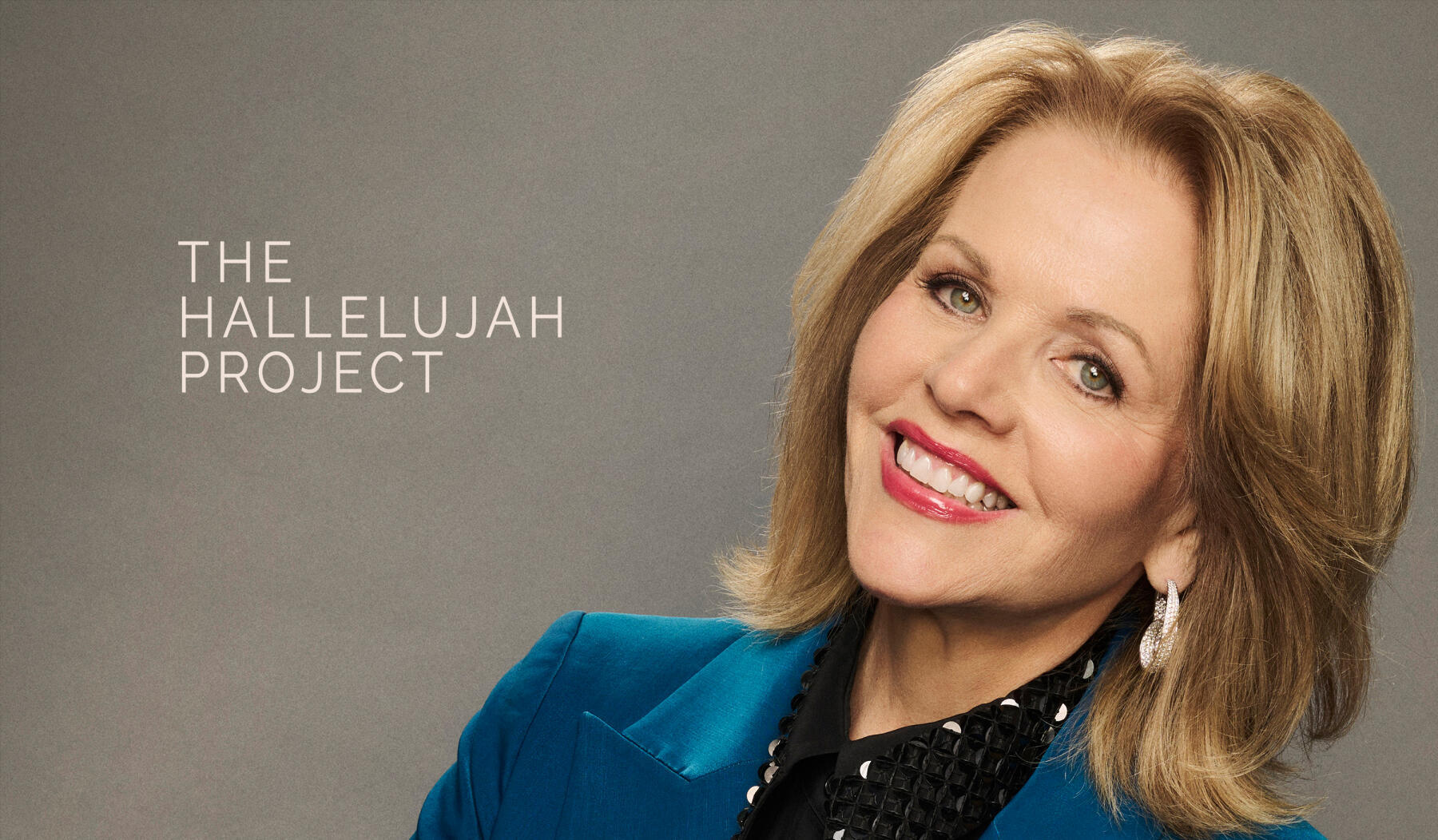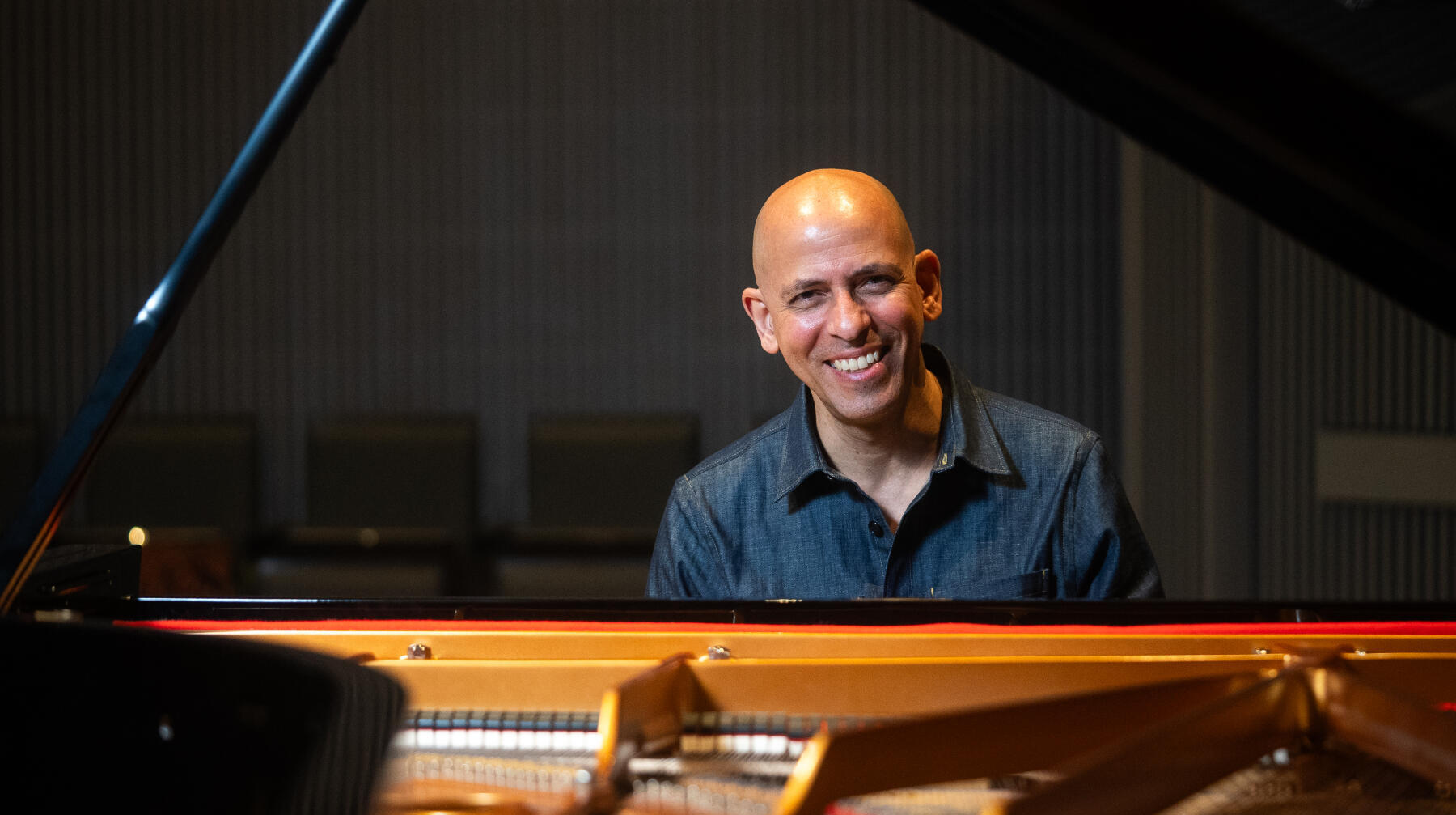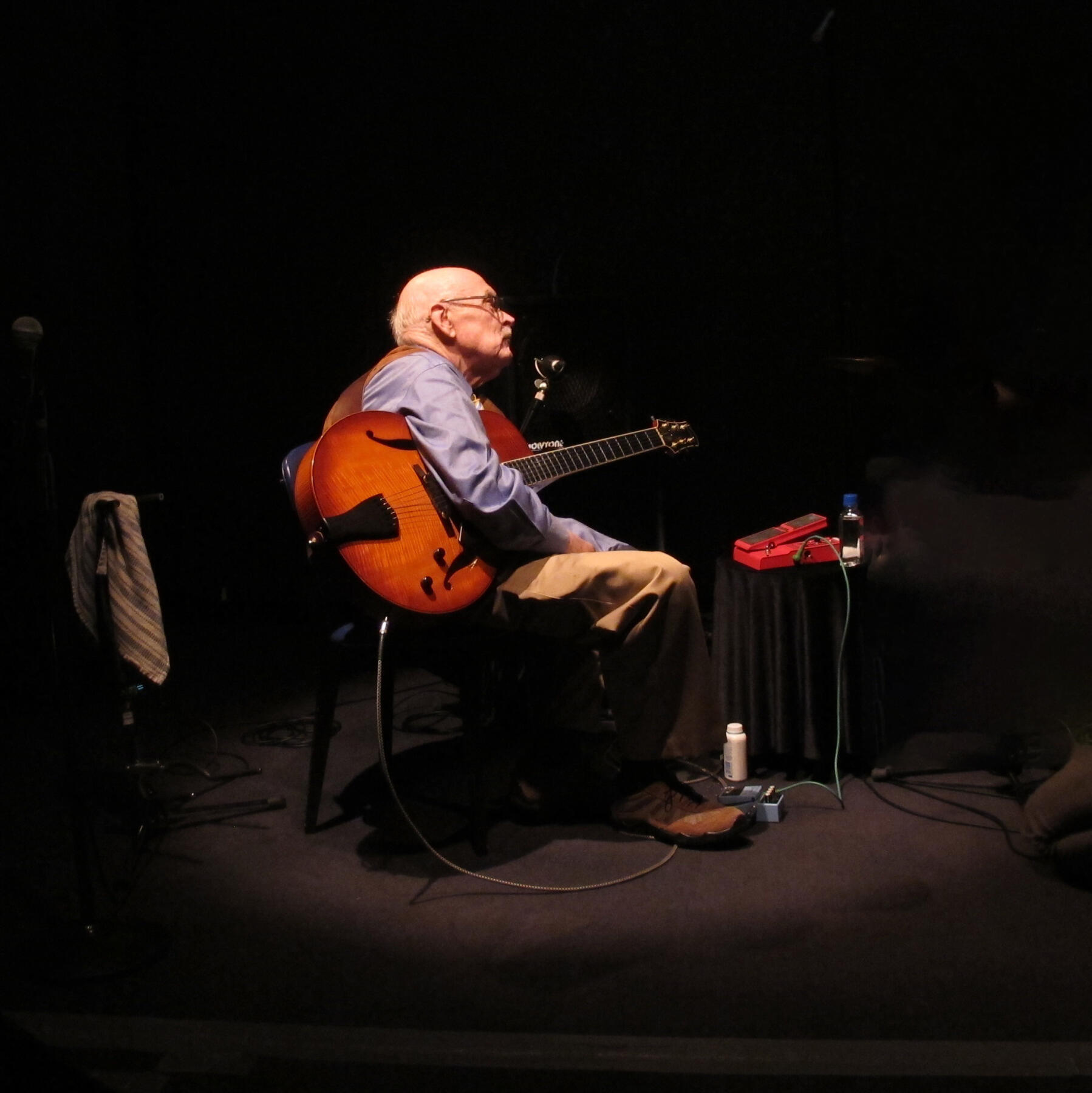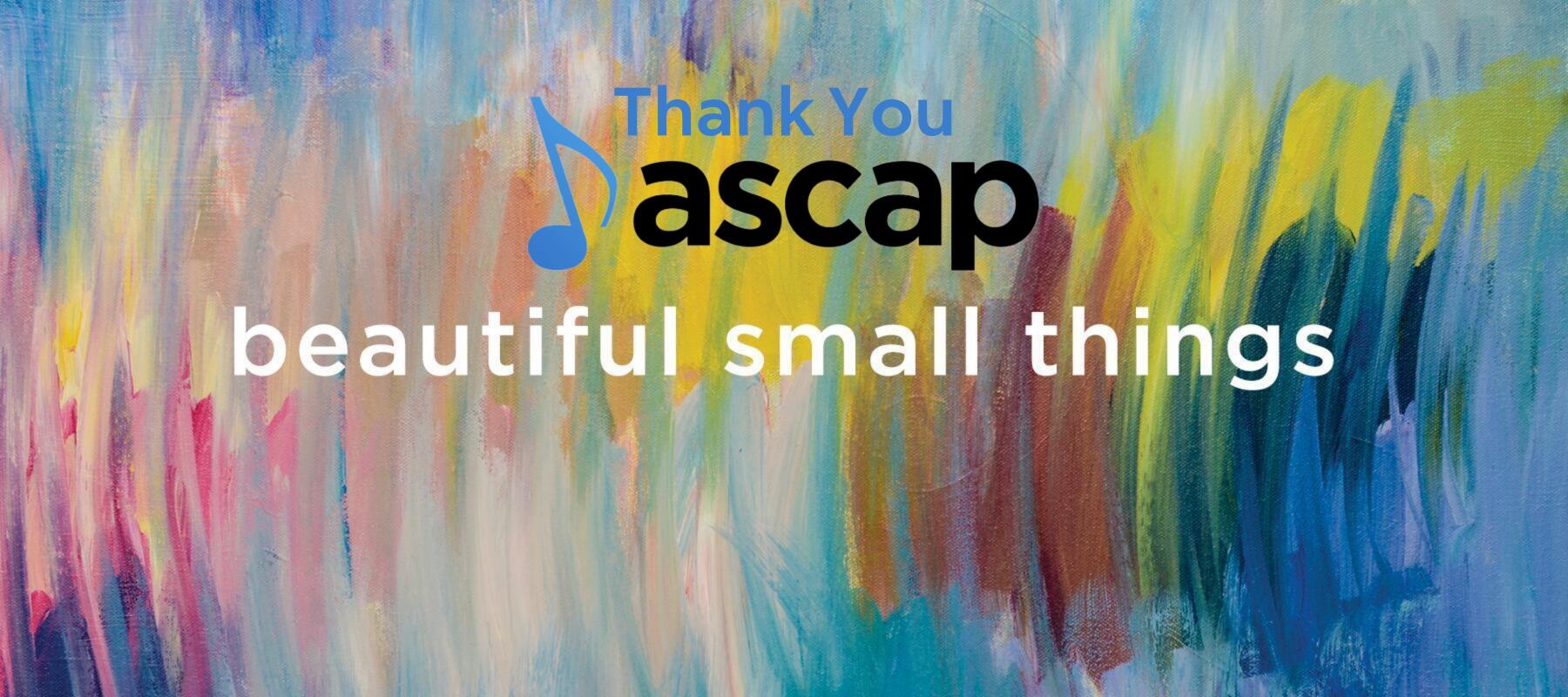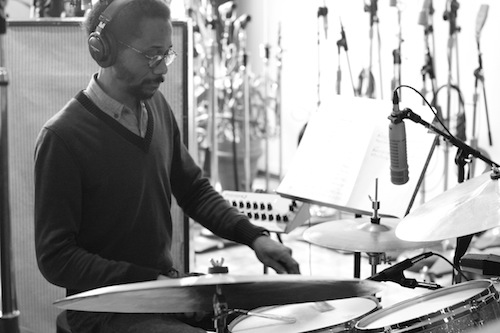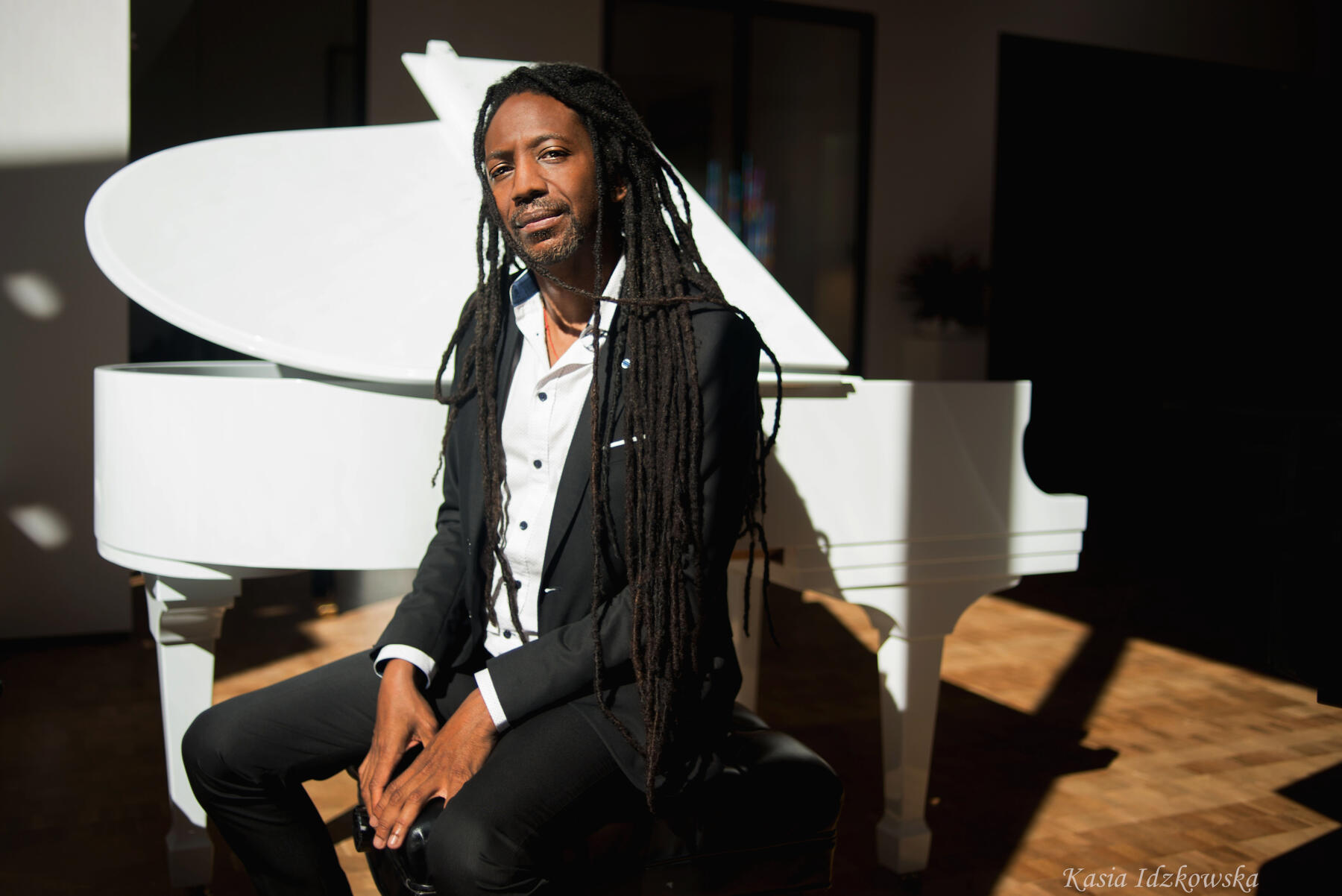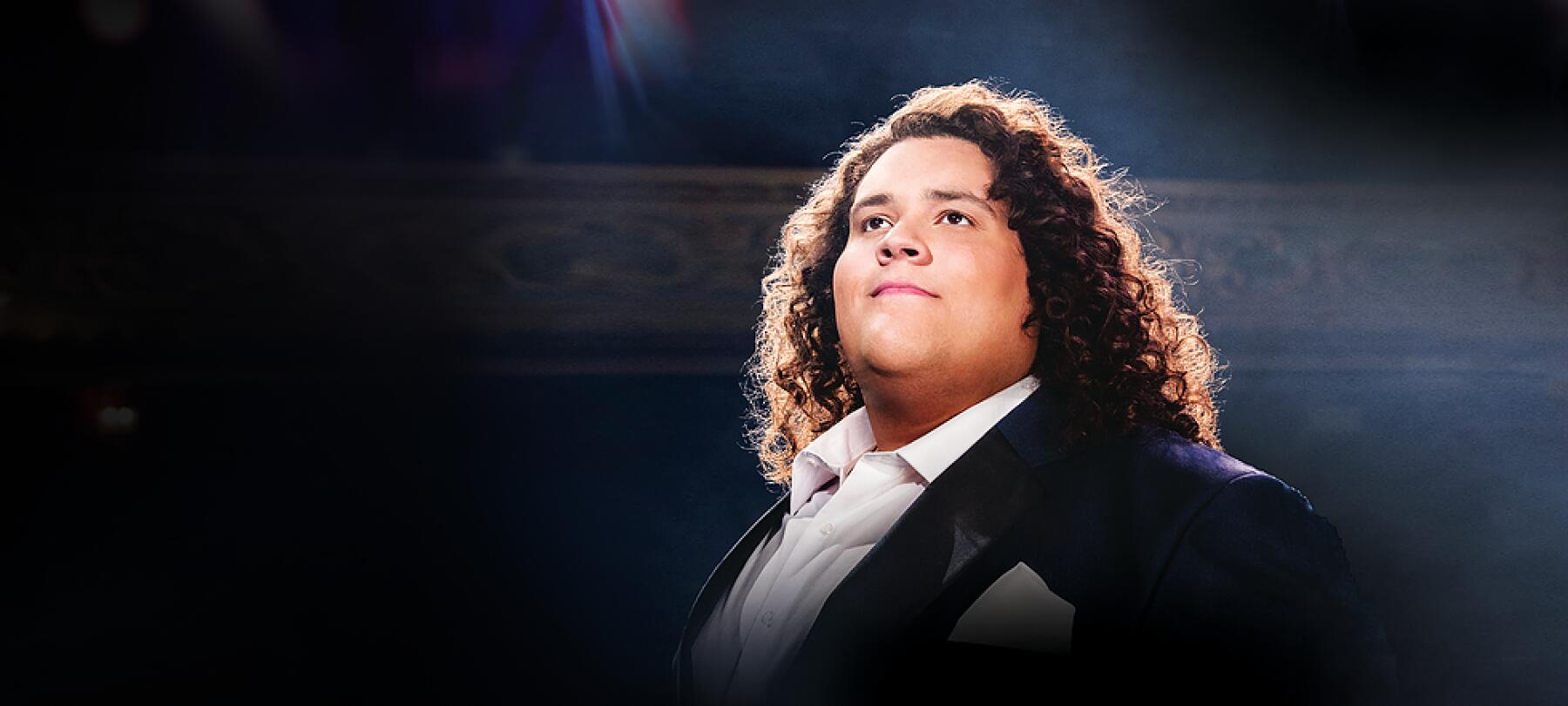news
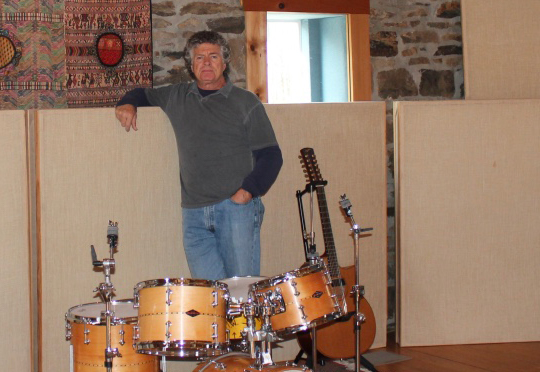
Nov 08 2016 - Spotlight: Matt Balitsaris
Guitarist and producer Matt Balitsaris is working with Scott Colley on his new ArtistShare project, Current. We asked him a few questions about his work as a musician, producer, and entrepreneur.
Who are your earliest musical influences?
I was the fifth of six kids, so my first influences were largely what my older siblings were listening to. Like several million others, I asked for guitar lessons for my 8th birthday after seeing the Beatles on Ed Sullivan. James Brown had a radio station in my hometown. Of course there was heaps of country and bluegrass music around.
By the time I was in high school I was bouncing between the soul music and the music of Jimi Hendrix and the Allman Brothers. I didn’t really take music seriously as a career until I was out of high school. And I wasn’t really exposed to jazz much until the late ‘70’s.
Who are your influences now (music or non-music)?
That’s a complicated question. A few years before I started Palmetto Records, I started visiting Haiti regularly, and began getting involved with various Development organizations, and ultimately got involved in political advocacy as well (that’s when I joined the board of the Center for International Policy). That has exposed me to some of the most remarkable people I’ve ever met, people whose level of commitment is completely off the charts, who struggle for social justice and against poverty against all odds and in the knowledge that their efforts will go largely unrecognized. (In many ways they are very like jazz musicians!).
I decided to leave Palmetto in 2009, because I’d joined the board of a Haitian microfinance institution, Fonkoze. I wanted to devote more time to that work, and I couldn’t see how to make the label sustainable. I left the label in January 2010, and the next week the earthquake hit Haiti. I was immediately consumed by the work of Fonkoze.
Negotiating my exit from the label had taken six months, and was a tremendously emotional experience. I was letting go of what I’d spent 20 years building. And yet, I was suddenly absorbed by something that was so much more consequential; it really made my personal concerns seem minuscule. And, over time, I realized that my life as a musician had very much prepared me for Fonkoze and Haiti. I was comfortable working without any discernible structure (after all I’d worked with Andrew Hill!), and I was once again surrounded by brilliant, extremely dedicated people.
As a producer, what are the most memorable projects you have worked on?
The Andrew Hill records were really memorable. Especially with Dusk, we knew what we were doing was really significant, because Andrew was sort of re-emerging, and the sextet was getting a reputation. And as with everything you did with Andrew, we had no clue how it was going to work out.
Another session that comes to mind is David Berkman’s Leaving Home, which was recorded on September 12 & 13, 2001. The fact that everybody was willing to leave New York to come out to Pennsylvania and make music was amazing. What was supposed to have been a funky, upbeat record became a whole other thing, and it was one of those sessions that felt like everybody was sharing the same brain. I had a similar experience last year recording Matt Wilson’s Big Happy Family. The record is in memory of Matt’s wife Felicia, who passed away two years ago. It was another instance where everybody was so invested in the moment and the music that it just poured out by the bucketful.
I’ve gotten to work with a lot of spectacular musicians, and there are sessions that are memorable because the music clicked, and others I remember because it was a struggle to get it to click. But, as I got away from it over the last few years, it was just the people that I thought about, the hang. Without the vibe of the hang, it’s just notes.
Scott cites Andrew Hill's Dusk as one of the recordings he is most proud of. Can you tell us the story behind that?
I feel like Ron Horton had a lot to do with Andrew being willing to take a chance on recording with Palmetto. Ben Allison and Frank Kimbrough spoke up for us as well. As with many projects, I had to get over the hump that’s always there at first, where the artist wonders why in the hell they have to deal with this “producer” (translation: asshole). There was only one brief rehearsal, but I think it was meaningful to Andrew that I asked for charts to follow, and could understand what was going on. I finally knew he was ok with me when we were meeting to listen a couple of weeks after the session and he made it clear that he was totally comfortable with me editing the stuff any way that I thought made sense. We were listening through a lot of really gnarly takes, trying to figure out how to piece it all together, and I turned around and he was snoozing in his chair. That was the day I think I passed the test.
What attracted you to become involved with Scott's new ArtistShare project, Current?
Last spring I decided maybe I’d reach out to a few people I hadn’t worked with in a while, people who I really enjoyed being around. As it happens, right when I was thinking about reaching out, I got an email from Scott promoting a gig at the Village Vanguard that mentioned the ArtistShare project. So I got in touch. We had worked together on a lot of projects, but we hadn’t seen each other for a long time. I was really excited. Scott’s amazing, of course, but he’s also just a beautiful guy to hang with, and I knew he’d bring in music that was interesting and challenging.
Do you see any common threads between all of your interests/business ventures?
I seem to gravitate to things that don’t necessarily appeal to a lot of other people. The people who populate the world of jazz are a particular tribe, who do what they do not because they think it might make them rich and famous but because they can’t imagine not doing it. The same is true of people who devote themselves to fighting poverty in the developing world, or who struggle to make sure our government’s policies around the world reflect our stated principals of justice. People like that, who are driven to do something that makes no sense to a lot of other people, are my kind of peeps.
What are your plans for the future?
See what happens.
Who are your earliest musical influences?
I was the fifth of six kids, so my first influences were largely what my older siblings were listening to. Like several million others, I asked for guitar lessons for my 8th birthday after seeing the Beatles on Ed Sullivan. James Brown had a radio station in my hometown. Of course there was heaps of country and bluegrass music around.
By the time I was in high school I was bouncing between the soul music and the music of Jimi Hendrix and the Allman Brothers. I didn’t really take music seriously as a career until I was out of high school. And I wasn’t really exposed to jazz much until the late ‘70’s.
Who are your influences now (music or non-music)?
That’s a complicated question. A few years before I started Palmetto Records, I started visiting Haiti regularly, and began getting involved with various Development organizations, and ultimately got involved in political advocacy as well (that’s when I joined the board of the Center for International Policy). That has exposed me to some of the most remarkable people I’ve ever met, people whose level of commitment is completely off the charts, who struggle for social justice and against poverty against all odds and in the knowledge that their efforts will go largely unrecognized. (In many ways they are very like jazz musicians!).
I decided to leave Palmetto in 2009, because I’d joined the board of a Haitian microfinance institution, Fonkoze. I wanted to devote more time to that work, and I couldn’t see how to make the label sustainable. I left the label in January 2010, and the next week the earthquake hit Haiti. I was immediately consumed by the work of Fonkoze.
Negotiating my exit from the label had taken six months, and was a tremendously emotional experience. I was letting go of what I’d spent 20 years building. And yet, I was suddenly absorbed by something that was so much more consequential; it really made my personal concerns seem minuscule. And, over time, I realized that my life as a musician had very much prepared me for Fonkoze and Haiti. I was comfortable working without any discernible structure (after all I’d worked with Andrew Hill!), and I was once again surrounded by brilliant, extremely dedicated people.
As a producer, what are the most memorable projects you have worked on?
The Andrew Hill records were really memorable. Especially with Dusk, we knew what we were doing was really significant, because Andrew was sort of re-emerging, and the sextet was getting a reputation. And as with everything you did with Andrew, we had no clue how it was going to work out.
Another session that comes to mind is David Berkman’s Leaving Home, which was recorded on September 12 & 13, 2001. The fact that everybody was willing to leave New York to come out to Pennsylvania and make music was amazing. What was supposed to have been a funky, upbeat record became a whole other thing, and it was one of those sessions that felt like everybody was sharing the same brain. I had a similar experience last year recording Matt Wilson’s Big Happy Family. The record is in memory of Matt’s wife Felicia, who passed away two years ago. It was another instance where everybody was so invested in the moment and the music that it just poured out by the bucketful.
I’ve gotten to work with a lot of spectacular musicians, and there are sessions that are memorable because the music clicked, and others I remember because it was a struggle to get it to click. But, as I got away from it over the last few years, it was just the people that I thought about, the hang. Without the vibe of the hang, it’s just notes.
Scott cites Andrew Hill's Dusk as one of the recordings he is most proud of. Can you tell us the story behind that?
I feel like Ron Horton had a lot to do with Andrew being willing to take a chance on recording with Palmetto. Ben Allison and Frank Kimbrough spoke up for us as well. As with many projects, I had to get over the hump that’s always there at first, where the artist wonders why in the hell they have to deal with this “producer” (translation: asshole). There was only one brief rehearsal, but I think it was meaningful to Andrew that I asked for charts to follow, and could understand what was going on. I finally knew he was ok with me when we were meeting to listen a couple of weeks after the session and he made it clear that he was totally comfortable with me editing the stuff any way that I thought made sense. We were listening through a lot of really gnarly takes, trying to figure out how to piece it all together, and I turned around and he was snoozing in his chair. That was the day I think I passed the test.
What attracted you to become involved with Scott's new ArtistShare project, Current?
Last spring I decided maybe I’d reach out to a few people I hadn’t worked with in a while, people who I really enjoyed being around. As it happens, right when I was thinking about reaching out, I got an email from Scott promoting a gig at the Village Vanguard that mentioned the ArtistShare project. So I got in touch. We had worked together on a lot of projects, but we hadn’t seen each other for a long time. I was really excited. Scott’s amazing, of course, but he’s also just a beautiful guy to hang with, and I knew he’d bring in music that was interesting and challenging.
Do you see any common threads between all of your interests/business ventures?
I seem to gravitate to things that don’t necessarily appeal to a lot of other people. The people who populate the world of jazz are a particular tribe, who do what they do not because they think it might make them rich and famous but because they can’t imagine not doing it. The same is true of people who devote themselves to fighting poverty in the developing world, or who struggle to make sure our government’s policies around the world reflect our stated principals of justice. People like that, who are driven to do something that makes no sense to a lot of other people, are my kind of peeps.
What are your plans for the future?
See what happens.


